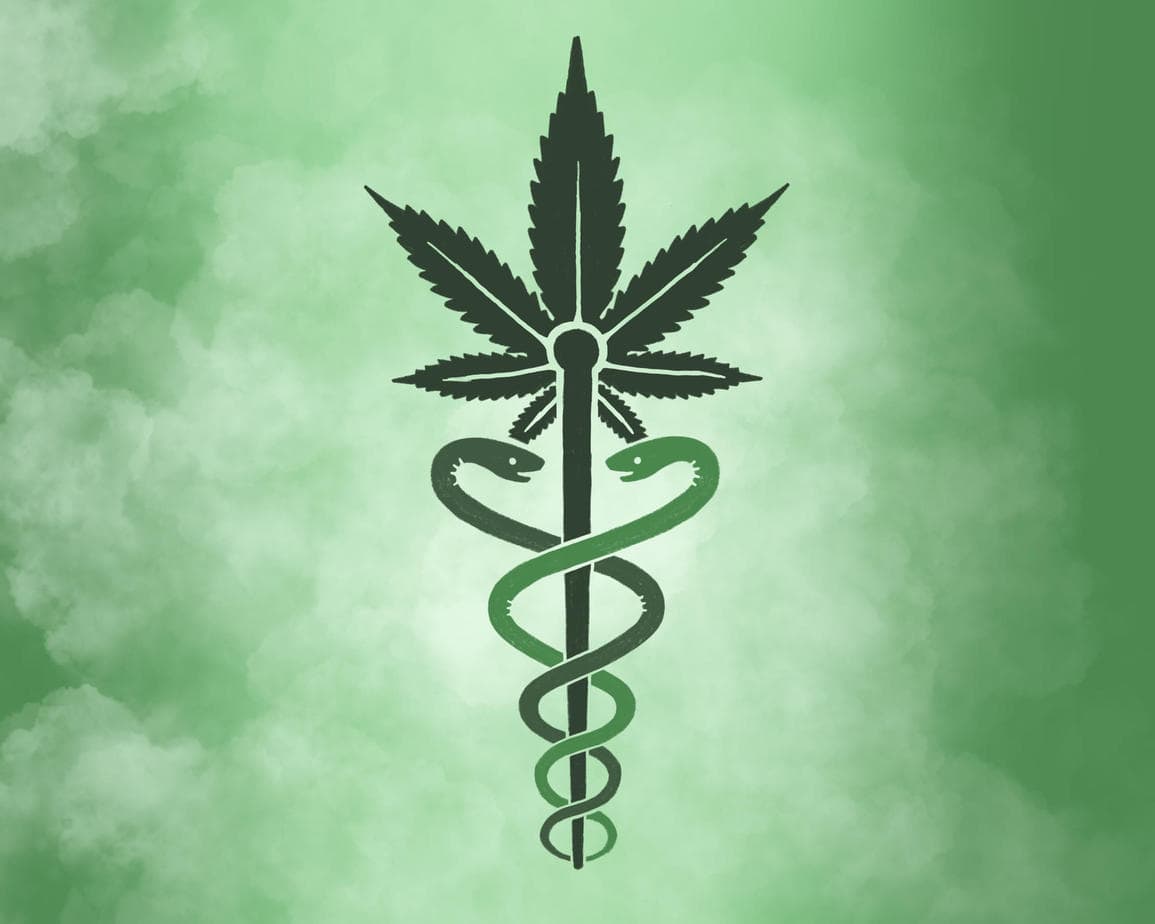Shedding Light on What Medical Cannabis Can Heal: an Extensive Evaluation of Its Healing Residences
In current years, there has actually been a growing rate of interest in the therapeutic possibility of clinical cannabis. While unscientific proof abounds, an extensive exam of the clinical data concerning the performance of clinical cannabis in treating these problems is necessitated.
Chronic Discomfort Monitoring
Persistent discomfort administration continues to be a critical aspect of clinical care, demanding an extensive strategy for reliable therapy. In the last few years, medical cannabis has actually become a prospective therapeutic option for people experiencing from chronic pain conditions. The endocannabinoid system, which plays a critical function suffering inflection, has actually been targeted by cannabis-based treatments to reduce symptoms and improve top quality of life for individuals.

Moreover, medical cannabis provides an appealing option for people who experience excruciating adverse effects from typical discomfort medicines. Its ability to deal with discomfort through a various mechanism makes it a beneficial enhancement to the arsenal of therapies available for persistent discomfort administration.
Epilepsy Therapy Possible
Medical cannabis has actually shown appealing potential in the treatment of epilepsy, offering an unique restorative approach for handling seizures in clients. Epilepsy is a neurological problem identified by recurrent seizures, affecting people of all ages. Traditional therapies for epilepsy include antiepileptic medications, but these drugs may not work for all clients and can have substantial adverse effects.
Research study on the usage of clinical marijuana for epilepsy has actually disclosed encouraging results. Cannabidiol (CBD), a non-psychoactive compound found in marijuana, has been particularly highlighted for its anticonvulsant properties. Research studies have actually revealed that CBD can decrease the regularity and severity of seizures in clients with treatment-resistant forms of epilepsy, such as Dravet syndrome and Lennox-Gastaut disorder.
Moreover, the FDA has approved a CBD-based drug, Epidiolex, for the treatment of seizures associated with these serious types of epilepsy. This turning point highlights the expanding recognition of medical marijuana as a valuable healing option for handling epilepsy and supplies wish for individuals who have actually not reacted well to standard therapies.
Nausea Relief Benefits
The relief of nausea or vomiting with making use of marijuana has been increasingly acknowledged for its therapeutic advantages in different clinical problems. Nausea or vomiting and vomiting prevail signs experienced by people undertaking chemotherapy, those with intestinal disorders, and people with persistent discomfort problems. Clinical marijuana, with its energetic substances such as THC and CBD, has revealed promise in offering remedy for queasiness.

Moreover, clinical cannabis offers a natural choice for individuals who do not respond well to standard anti-nausea drugs or who experience serious negative effects from these medications. Clients going through chemotherapy, in certain, have actually reported considerable improvements in their lifestyle when utilizing marijuana to take care of nausea. As research study in this area remains to expand, clinical marijuana is progressively being taken into consideration as a beneficial option for nausea alleviation in various clinical setups.
Stress And Anxiety Reduction Results
Studies have demonstrated the potential of marijuana in lowering stress and anxiety signs and symptoms with its communication with the endocannabinoid system. The endocannabinoid system plays a vital role in managing emotions, consisting of anxiety, by maintaining homeostasis check in the body. Cannabinoids in cannabis, such as THC and CBD, connect with the endocannabinoid receptors in the brain, particularly the CB1 and CB2 receptors, to regulate anxiety-related responses.

Patients with conditions like generalised anxiety disorder (GAD), social stress and anxiety problem, and post-traumatic tension condition (PTSD) might profit from the anxiolytic homes of cannabis (Medical Marijuana Clinic Clinton MS). However, additional research is needed to figure out ideal dosages, delivery approaches, and lasting impacts on anxiousness administration.
Prospective for Inflammation Control
With its well-known anti-inflammatory buildings, cannabis has revealed promise in possibly managing swelling within the body. Inflammation is the body's all-natural action to injury or infection, but when it comes to be persistent, it can add to different conditions such as joint inflammation, inflammatory bowel disease, and even heart illness. Research suggests that the cannabinoids discovered in marijuana, such as THC and CBD, can assist reduce and control the immune feedback swelling.
Research studies have actually revealed that marijuana can connect with the endocannabinoid system, which plays a critical role in controling swelling. By targeting the cannabinoid receptors, marijuana compounds can regulate the immune response, causing a decrease in swelling levels. This makes marijuana a potential prospect for handling inflammatory problems where conventional treatments have actually dropped short.
Moreover, cannabis-derived products like CBD oil have actually gotten appeal for their anti-inflammatory properties, with numerous individuals using them as a natural remedy for problems related to inflammation. While even more research study is needed to completely recognize the devices behind marijuana's anti-inflammatory effects, present searchings for show promising results for the potential use of clinical cannabis in managing inflammation.
Final Thought
To conclude, medical cannabis has revealed encouraging healing residential or commercial properties in managing chronic pain, treating epilepsy, eliminating nausea, reducing stress and anxiety, and regulating inflammation. Its prospective advantages in numerous clinical conditions highlight the value of more study and exploration right into its medical usage. The evidence recommends that medical cannabis can be a beneficial alternative page therapy alternative for patients seeking relief from an array of problems and signs.
In recent years, medical marijuana has arised as a prospective healing option for individuals enduring from persistent discomfort conditions.Medical cannabis has revealed promising capacity in the therapy of epilepsy, offering a novel healing method for taking care of seizures in patients. As research study in this location continues to grow, clinical cannabis is significantly being thought about as an important choice for queasiness alleviation in numerous clinical settings.
In conclusion, clinical marijuana has revealed promising restorative residential or commercial properties in managing chronic pain, treating epilepsy, relieving nausea or vomiting, minimizing stress and anxiety, and controlling swelling. The proof recommends that clinical marijuana can be a beneficial option therapy choice for clients looking for alleviation from an array of problems and signs.